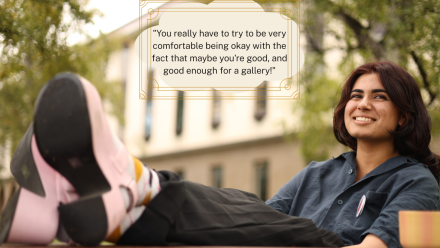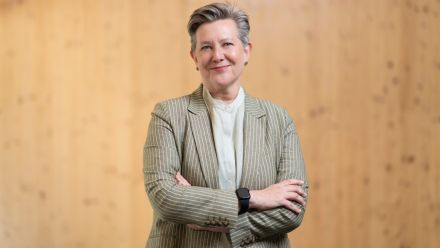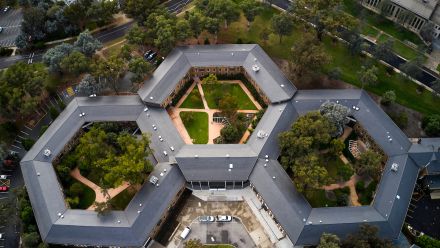Update on our financial health
Message to staff and students from the Vice-Chancellor on 27 May 2020
To the ANU Community,
I think it is important that I try to keep you up to date as best I can with the COVID-19 pandemic's impacts on the University and how we are responding. There is still a great deal of uncertainty, but as a matter of principle I want you to know what I know.
Some universities have already tried to quantify COVID-19's financial impact on their operations. I have waited until now because I wanted to be sure we had enough information to validate our assumptions, and make sensible predictions.
Over the past week, we have finally been able to gain a more informed view of our finances. I want to be completely upfront with you about what we have learned, what we've already done in response to the COVID-19 financial shock, and to outline the process we'll follow to get through this challenging time together.
As the crises of 2020 unfolded, we have done our best to first and foremost look after the wellbeing of you - our staff and students - because that is a core value of our institution. But the fires, smoke, hail and coronavirus we've endured together have all increased the cost of running ANU. The COVID-19 pandemic, in particular, has caused a big hit to our revenue, a downturn that we will feel not just this year, but in the years to come.
There is no quick or easy fix. Fortunately, we started 2020 in a strong financial position, but we now know that this year we'll earn around $150 million less than we expected and we'll spend about $75 million more than we planned due to the crises we have endured this year. The $225 million gap that creates is what we now need to address.
Together we have already made some progress. We've deferred capital projects where we sensibly can, and we have saved significantly due to reductions in travel. With the support of our Council, we are borrowing money to help prudently spread some of our current costs into the future.
But even after all of this, we need to find an additional $100 million in savings this year. We also need to be able to operate with at least $150 million less money next year, and we can expect ongoing savings of this magnitude are likely in 2022 and beyond.
So how do we do it? For a start, we can all economise. I need everyone to think carefully about every ANU expense and ask "is this essential to our mission". If it isn't, we need to save the money. This will involve sacrifice, but every saving will help.
Salaries are our biggest expense. The members of the ANU Senior Management Group - the DVCs, the College Deans, the PVCs and VPs, and other senior members of the University - have volunteered to help do their part by taking a 10 per cent pay cut for the second half of 2020, and I will take a 20 per cent pay cut. Under the ANU enterprise agreement there is a scheduled pay rise for staff in July. I'd welcome your honest feedback on whether now is the best time to take on this additional cost that could be part of our savings.
ANU is only as strong as our cohesive and talented community, so I want to avoid involuntary redundancies if we possibly can and pursue every other option to find the savings that are required. For instance, I would also like your feedback on how a voluntary separation scheme might work best for the University, noting that it must be appropriate for the staff who are interested in participating, but not damage the University's ability to undertake our crucial mission. That mission is going to be even more important as we chart the future ahead of our society and our world.
I know many of you will have thoughts, ideas and questions. We have set up a website where you can put these forward, and I'll also welcome these at my staff forum tomorrow.
We will have more information soon about other opportunities for you to contribute your ideas, while at the local level, Deans, School and Research Institute Directors, and Executive and professional staff leaders, will re-work budgets. I know it is a compressed timeframe but we need to have set a clear direction for the rest of 2020 by the start of semester two. In September, we will have a much better sense of how 2021 and beyond will look, so we can frame longer-term plans. And please remember, everyone is doing the best they can. So when things are not going quite right, let's work together to improve or fix the problems.
The COVID-19 pandemic is an unprecedented challenge that will change the world. Australia and the world will look to us and other universities to help provide a pathway for the future, whether it be the ideas that will shape our society, or an education that will help our graduates to contribute and lead in the time ahead. The coming months will be uncomfortable for all of us, but our work is essential, and we will get through 2020 by focussing on our mission, and looking after our community.
Thank you everyone for all that you have done, and all that you have coped with, this year.
Brian


